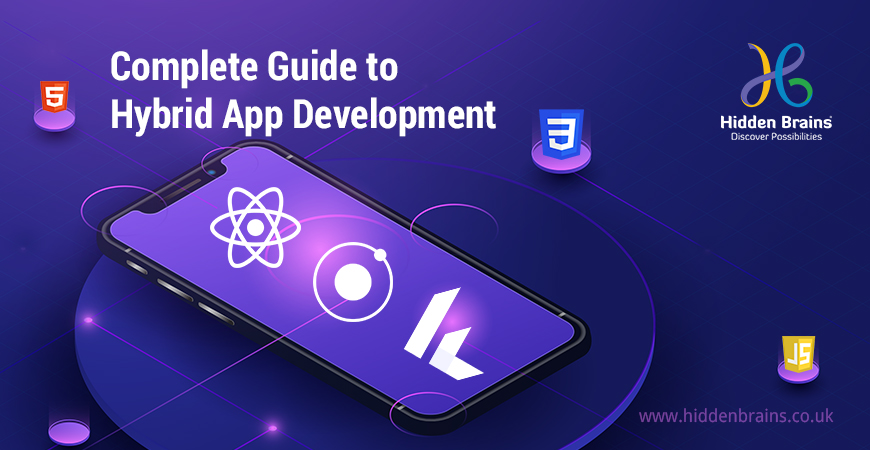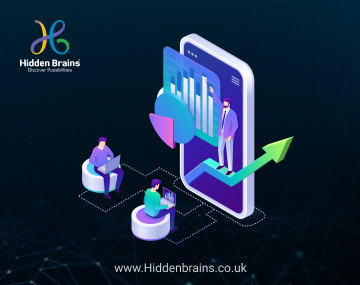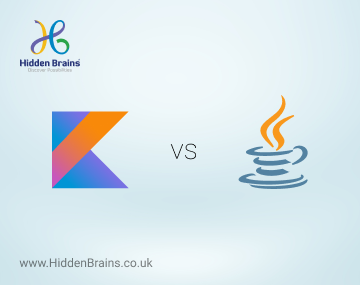
If you plan to develop a mobile app and want to do it now, then considering hybrid app development is an ideal choice. The hybrid approach to mobile app development is becoming more and more common among developers and this is largely due to the fact that hybrid development technologies are improving and doing their job. If you want to know further about hybrid app development for 2023, then keep reading.
What is meant by hybrid application?
A hybrid app is a software application that consists of the combination of elements of both native apps and web applications. Generally, it can be said that hybrid apps are essentially web apps that have been wrapped in a native app shell. Once these apps are downloaded from an app store and installed locally, the shell can connect to whatever capabilities the mobile platform provides through a browser that is embedded in the app. The browser and its plugins run in the background and are not visible to the end user.
Hybrid apps are so popular that they allow developers to write code for a mobile app simultaneously and accommodate multiple platforms. Since hybrid apps add an extra layer between the source code and the target platform, you might find them performing slightly slower than native or web versions of the same app. Some features of hybrid applications include
- The capability to function even if the device is connected or not.
- Provides integration with the mobile device’s file system and Web-based services.
- It is an embedded browser to improve access to dynamic online content.
How does a hybrid app development function?
If you want to know how Hybrid apps work, it is similar to Web apps, but like native apps, they need to be downloaded to the device. Hybrid apps are typically coded in HTML5, CSS, and JavaScript, like web apps. The device’s browser engine is used to provide HTML and JavaScript and native APIs to access device-specific hardware.
Even though a hybrid app typically shares similar navigation elements to that of a Web app, whether the application can work offline depends on its functionalities. If an application does not require database support, it can function offline.
The pros of using hybrid apps are:
- It can operate on different platforms.
- Hybrid apps have faster build times compared to native apps.
- They are cheaper to develop than building two versions of a native app for two different platforms.
- They are easier to launch patches and updates.
- Apps can work both online and offline.
The cons of using hybrid apps are:
- There might be variations due to learning development on one platform.
- The appearance of an application might vary from platform to platform.
- Testing the application on various devices is necessary to ensure proper operation.
- If the user interface (UI) isn’t similar to and well enough designed to what browsers the user is used to, the user experience (UX) might fall.
Major benefits of hybrid app development
The main advantage of the hybrid app development approach is that it helps businesses evolve from around the world seamlessly, giving rise to multiple platforms. Below are some major benefits explained briefly. If you have doubts, you can approach mobile app development services.
-
And enhanced UX/UI
In Hybrid app development, you will find a combination of the advantages of native and web apps. As a result, it offers a consistent and flawless user experience across iOS application development services and custom android app development services.
Moreover, the lightweight hybrid app UI helps load content and graphics easily and quickly. The apps can adapt to different device screens, ensuring a quick data display and seamless data streaming. The excellent UI experience also enhances the chances of the application’s approval at the app store.
-
You will get a wider market reach
Hybrid app development is a perfect way to target different platforms in a single solution. It becomes a lucrative and cost-effective option to reach out to many users through different mobile platforms in this competitive market.
-
It requires a shorter development timeframe
One of the main advantages of using hybrid mobile apps is that they are easier and faster to develop than a native app. Hybrid apps enable organizations to increase their existing web development tool kit, eliminating the need to create a new codebase across each platform. Keeping the knowledge of JavaScript and HTML, the code gets written, whereas the application operates across all major operating systems.
-
Hybrid apps are easy to maintain
In Hybrid mobile application development, you will get simplified maintenance. On native apps, the development teams need to put out new versions for every platform with each update. Hence, a hybrid app eliminates versioning and makes app management as simple as possible, like updating a web page in real-time.
-
It is available offline
Most mobile applications commonly suffer from limitations that are caused due to the absence of offline support. Therefore it is a challenge for companies who serve customers from rural areas or places where internet connectivity is challenging.
As per statistics, 70 percent of users abandon an app because of its long processing and loading time. However, the offline accessibility feature helps overcome this challenge. Therefore, the end-users can have uninterrupted access to the app’s data without any performance glitches.
-
High-quality performance
Hybrid apps give high speed and performance, just like native apps. In some cases, they are even faster than progressive and responsive apps. The reason behind it is that it has no dependency on network communication. Also, apps with more users show a better speed on all devices.
Some Popular Hybrid App Development Frameworks
Below are quick details of some popular hybrid app development frameworks and their unique features.
-
React Native
React Native is one of the top choices of development teams all over the globe. Not only is it the most preferred option for creating hybrid apps but also famous for native & cross-platform apps.
It is equipped with a stack of advanced features and functionalities, including code reusability, live reload, community support, native plugins, and many more. Hence it is a logical option for companies looking forward to building high-performance apps by delivering users a native-like experience.
-
Flutter
It is an open-source framework made by Google and is pretty well known for its speed and reliability, which are needed to build highly interactive native interfaces. A rich collection of widgets is offered for customization, SDKs, and plenty of other development tools, making it easier and quicker to create hybrid apps.
-
Xamarin
Microsoft technology owns the Xamarin development framework and is compatible with any mobile platform. This framework enables developers to create universal apps without sacrificing the native design.
-
Ionic
Ionic has gained massive popularity in recent years. It provides an extensive set of features along with tools. The framework is powered with integrations in native mobile UI components & layouts along with debugging & testing tools that help to build interactive apps.
-
PhoneGap
PhoneGap is an open-source app development framework highly recommended for its compatibility. Its ease-of-use functionality has made it popular across various platforms. It has the Cordova plugin’s power, making it easier and quicker to develop apps.
Most Popular Hybrid apps in 2023
Various hybrid applications are available that allow high performance and quick response. We are unaware that we are all using amazing hybrid mobile applications.
-
Instagram:
Following the hybrid approach, developers have got the opportunity to build an app that supports both offline data and rich media. One of the best examples of this is the signature short videos. The app allows users to access the media even when offline or at least leave an error message.
-
Pacificia:
You will find one of the best UI in the Pacifica app. Pacifica consists of various videos to be added as the background. With the video theme background of the application, a native-like look and feel are radiated. The rows of features are wrapped as the web layer and encapsulated in native navigation.
-
Uber:
The mobile app is currently making your travel comfortable and easy to access and is one of the most popular hybrid apps. The app’s easy navigation and simple user interface make it extremely popular and competitive among its rival apps.
-
Gmail:
For a long time, Google has been using HTML for its popular internet mail service. Google has also made a new version of Gmail’s mobile application using native and HTML elements.
-
Discord:
The popular chat network for gamers and streamers has been built as a hybrid app. The developers behind the idea prioritized the fast implementation of UI components and the speediness of quick fixes, which was provided by using a single codebase.
-
Amazon:
Amazon is another example of a hybrid app powered by HTML5. It redefines the experience of users while it is accessed. The app offers a top-notch user interface that makes it unique among different users and also makes the app extremely appealing. Some features include:
- A simple and a fast checkout process
- An app review that ensures that users receive quality products
- The users give reviews and feedback
- Global distribution
Tools needed for building a hybrid app
While native iOS and Android apps are ideal because of their optimized platform, hybrid mobile app technology is evolving, making it a more viable and time and cost-efficient option for mobile app development. Hybrid apps can feel closer to a native app experience due to their high-powered frameworks that have solved some of the hybrid apps’ limitations. Opt for one of the technologies, and you’ll end up with a better-quality hybrid app,
Hybrid mobile app frameworks offer quick work of programming apps like any other traditional web application programming framework. These apps include libraries of code, APIs, and other features to make coding your app faster and easier. Web-based frameworks also use front-end technology like HTML, JavaScript, CSS, and cross-platform frameworks, which take a programming language and convert the code into native code for the device.
The cost involved in Hybrid app development
The cost of hybrid mobile application development is based on multiple factors. The cost is one of the biggest factors that makes or breaks a decision. If you go and consult with an Android app development company or an iOS app development company, you might get around $50,000 to $100,000 plus for each application.
If you build two separate apps, it will cost you more than $200,000 to $250,000 more. This is where the cost of hybrid app development comes into play. Hybrid technologies do not require developers to write two separate applications. Here, developers can write the app once instead of using a single codebase and optimize the code for certain platforms. As a result, this helps significantly save the application.
If you are willing to, you can build an application for a single platform at present, and later you decide to build the other app, you won’t have to begin from the start. In the same way, even if you build separate applications, you can easily do so. Depending on features, functions, scale, and other factors, a comprehensive hybrid mobile application for multiple platforms can cost you more than $30,000 to $50,000 and sometimes even more.
Factors influencing the cost of hybrid app development
-
Platforms needed for development:
Although hybrid mobile application development means building apps for multiple platforms, there is no such rule that you cannot build for one. You can build for one as well.
You can build the app for your Android or iOS platforms if there is a requirement for only one app. You also have the option to build for both.
-
Applications scale:
Another factor influencing the cost of hybrid app development is the scale of the hybrid mobile application. The app’s complexity and scale greatly influence mobile app development costs. Hence it can only be assessed after reviewing the requirements.
-
Applications Features:
Mobile app features always define what it is and how it will be perceived in the market. This is what determines the app’s cost as well. The more features an app contains, the more it will cost. The cost of mobile app development is often connected to features that depend on the value.
-
Hybrid App Development Model:
Several app development models in the market are available. If you have an in-house development team, its cost will differ from hiring part-time developers. Similarly, if you have part-time developers on your payroll, it will completely differ from dedicated developers for your project. Hence this is also known as mobile app IT Staff Augmentation.
-
Location:
In hybrid app development and any development service, location is one of the most important cost-deciding factors that app owners must know about. However, the app’s quality also matters, and it is not certain that paying a higher price can provide you with more value.
As per reviews, established mobile app development companies that charge a good price for building mobile apps usually build better hybrid applications.
-
Time:
Time is one of the most critical factors that can influence the cost structure to a great extent. Fluctuating costs are never good for a company, so planning the project promptly is imperative.
The longer the project, the more is the cost. Hence this will affect the budget, delivery timelines, and, most importantly, the relevance of the system. The reason is dynamics can change anytime, and being on time is compulsory for most projects in the hybrid app development domain.
-
Support and Maintenance:
The support and maintenance will affect your app’s development cost as well. This is because the more feature-rich and complex app you are willing to build, the more you will have to spend. Therefore, keeping a mobile app up and running is important since it ensures that you get what you deserve without facing any difficulty. Hence, the app’s maintenance is one factor that influences the cost of hybrid application development.
Factors to consider while choosing a hybrid app development
Before choosing hybrid app development, below are some factors you must consider.
-
List out the Native-like Features
You must list all the native-like features you want to add to your business solution. For example, you are willing to use the camera to create a part. This is a native-like feature as it will use native functionality to create the end solution. Similarly, if you are planning to utilize other native functionality, you will have to list all of them down.
-
Think of the present and future
Building a hybrid app is not just about what you want to add at the moment that you need to consider when defining the framework. It is equally important to focus on the future-driven features you are willing to add to your business.
-
Identifying the Limitations of Hybrid App Development
Being a decision-maker, you must be familiar with the flip side of developing a hybrid mobile app. For example, you want to add animations. A hybrid framework has its limitations concerning animations. As a result, you must keep in mind if the solution can accept this limitation. This will also help you know if hybrid app development suits the best solution you have in mind. At the same time, it will help you choose the hybrid framework that offers features, helping you to meet the scope you have planned in your mind.
-
The Interface Design for the Apps
Interface design is an important consideration when choosing frameworks. Developers must function within the guidelines of ease of operation, accessibility, and usability. If the apps fail to possess these qualities, they will be discarded by the users.
As a result, when developing app solutions, you must check which frameworks comply with these guidelines. Make sure that you can create smooth and frictionless apps for your business.
-
Choosing the Partner Company
While creating a hybrid app for your business, you must discuss the whole part with someone with a familiar experience. Outsourcing to the experts will help you save some time and effort required for developing the app. You will get time to work on your core business, and on the other hand, the development company will take care of your solution needs.
Hence, the partner company is an essential element when choosing the framework. This will help you realize whether you are capable of developing the solutions you are planning in the choice of framework. If they feel you can, then you must go ahead with the framework.
Conclusion
Hence this was everything related to hybrid app development for 2023. The above hybrid app examples are a perfect reason why Hybrid frameworks are a leading choice. If you still face doubts, comparing native app examples with hybrid ones is the best way to gain clear understandability.
FAQs
Q-1: What is meant by hybrid app development?
Ans: Hybrid app development occurs when a developer creates a single app for both operating systems. Hence it can be referred to as a combination of the web and native app technologies, which allows the developers and mobile app development services to streamline the development process and release the apps quickly.
They are installed on mobile devices and do not occupy much space. They can be easily accessed through the platform’s embedded browser, thus enabling faster accessibility and smooth availability.
Q-2: Point out the difference between a hybrid and a native app
Ans: Native apps have been created to work with a particular operating system. It can either be iOS application development services or custom android app development services. If the developers want to create a solution for both operating systems, they must create separate apps. Since the apps are developed for the native platform, the user experience is good and offers excellent performance. Native apps are highly secure hence promising to reduce data risks.
On the other hand, it becomes much easier to develop and deploy apps for two different platforms using a single codebase through the hybrid app solution. The hybrid apps are very easy to maintain, and the time is also less for these app solutions.
Q-3: When must you use a hybrid app?
Ans:
> If you have an app that requires you to handle multiple image formats and a large amount of data, then a hybrid solution is an ideal option.
> Hybrid app development can be chosen while developing an MVP for the product you are planning.
> If you are a startup and are willing to create a base-level app for your business, then hybrid is the best.
> Also, hybrid apps are best when you want to establish a low-maintenance, low-cost, and high-performance app solution for your business.
Table of Contents





